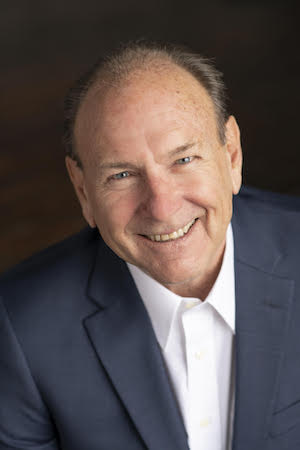Schuetz: The Nevada Gaming Control Board Has Officially Lost Its Way
The type of turnover seen at the top of the NGCB is a recipe for disaster, and it is a guaranteed way to materially degrade the organization's effectiveness.
10 min

“I’m not hearing any criticism from the industry.”
— Kirk Hendrick, chairman of the Nevada Gaming Control Board
In the mid to late 1970s, I embarked on a two-year study to understand the early efforts to regulate the Nevada casino industry. My work focused on the period from 1945 to 1966, and it was done in conjunction with a graduate Ph.D. program at the University of Utah. I really worked quite hard on this project and had incredible help, especially in Nevada. I would start listing these saints, but it would take all day and include people involved with Nevada politics, higher education, gaming, government, and beyond — all back in the day.
The most important person I stumbled across was Ed Olsen, who was chairman of the Nevada Gaming Control Board from 1960 to 1966. When I caught up with him in the late 1970s, he was living alone in a very small studio home in Reno. At this time, his days were spent smoking cigarettes, consuming copious amounts of vodka, and watching a very blurry small TV with rabbit ears (ask your parents).
I was introduced to Ed by Mary Ellen Glass, an incredible woman who headed up the oral history program at the University of Nevada, Reno. The first thing I noted about Ed was that he was thrilled to meet me.

Actually, Ed would have been thrilled to meet almost anyone, for he was dying, and he was dying alone. Now, he had me to sit and smoke with for hours upon hours, all the while talking about gaming regulation. I also brought him ice cream for his freezer, which he loved. He could not get ice cream because the delivery service he used to secure groceries for home-bound patients would not deliver it because the route was long, and it would melt. I thus became his pusher man, feeding his ice cream dream, and he was always thrilled to see me.
Historical underpinnings
Ed had wonderful stories about the development of the Nevada Gaming Control Board, and he had the receipts.
In the early 1960s, Ed came to understand that there was an FBI wiretapping and surveillance operation taking place in Southern Nevada from within a business front named the Henderson Novelty Company. When Ed and his chief investigator, Charles LaFrance, came to understand this, they secured a trash truck and corresponding uniforms. They had the trash picked up from the FBI front, understanding this was long before paper shredders were in every office and home. One could even read the typewriter ribbons that were discarded in the waste, and there was also this stuff called copy and mimeograph paper that could be read quite easily.
This gave Nevada a leg up on what the feds were doing in Southern Nevada, for the Nevada casinos seemed to be on someone’s hit list. This most certainly was related to the reality that many of the people involved in casinos in the state were mobbed up, and this reality was bothering the feds, especially J. Edgar Hoover.
Ed also concluded that the Nevada Gaming Control Board had a mole within it, a mole that was leaking information back to the FBI. This meant that Mr. Olsen and Mr. LaFrance needed to develop a second filing system. There was the main filing system for the NGCB, which was sort of accurate. Then there was the Olsen/LaFrance filing system, which was really accurate and contained investigative files that they did not want to share with the FBI — directly or indirectly.
One of the cool things about the Olsen/LaFrance system was that Ed took many of these files with him when he stepped down from the NGCB in 1966 at the end of a contentious gubernatorial election. He did not want this information to fall into the wrong person’s hands.
Ed and I had a great time going through those files at his studio home, smoking cigarettes and drinking vodka during the summer of 1978. The transcripts of the wiretaps and whose lines were being tapped were particularly interesting. They even included intercepts of Martin Luther King, Jr., on which an agent had scribbled a rather demeaning comment on the transcript margin.
What I learned from those files was that the federal government had no respect for the U.S. Constitution and was dead set on closing down casino gambling in the state. And if they could not shut it down directly, there was a plan for a 10% “transaction tax” on all wagers, which would make commercial casinos impossible. Politically, there was little the two senators and one congressman in the state could do about it.
Rudderless ship
After spending much of the summer with Ed, I returned to the University of Utah, where I continued my research. I then received a call that Ed had been taken to a hospital in Reno to have a comfortable place to be as he was being challenged by end-of-life issues. I immediately jumped in my car and raced to Reno from Salt Lake City. I wanted to say goodbye and thank him for his friendship and help. When I got to Ed’s room in the hospital, he was being given his last rites. Ed saw me and waved me over. He took off his oxygen mask and had a short conversation with me from what was left of his voice.
Later, in the hallway, I ran across the priest. He told me it was the first time someone had interrupted last rites to tell a story about Jimmy Hoffa and the mob’s bank as an investment tool for Las Vegas casinos.
Where my research led me, and I have been a strong believer of this for the last 40-plus years, was that the Nevada Gaming Control Board was created to keep the industry from being shut down or destroyed by the feds — plain and simple. The regulatory structure these pioneers built was a moat, a moat to protect the casino industry from the feds, and this moat was built with strong regulations to remove any excuses from the feds to move in.
It worked for quite a while.
Since my summer with Ed, I have continued to be a keen observer of the regulators in Nevada. As a senior casino executive and board member for a games manufacturer in Las Vegas, I also fell within their regulatory control. My observation of the overall trends of this institution has been that, with a hiccup here and there, an honest effort was being made to provide a competent and professional regulatory effort.
This began to grow shaky when A.G. Burnett stepped down as Board chair in December 2017. Since then, a new chairperson has been appointed in 2018, 2019, 2020, 2022, and 2023. When one sees this type of turnover at the top of an organization, one should anticipate a performance somewhat akin to a rudderless ship, understanding that people who are appointed to the chair position by the governor do not hit the ground running. There is a very steep and long learning curve that stands before the new chairperson. In short, this type of turnover at the top position is a recipe for disaster, and it is a guaranteed way to materially degrade the organization’s effectiveness.
Raison d’etre
Symptoms that the Nevada Gaming Control Board was adrift began to become evident in January of this year when the U.S. Attorney’s Office announced that Scott Sibella had agreed to plead guilty to a felony for failing to handle a financial transaction appropriately with a California illegal bookmaker while president of the MGM Grand.
While Mr. Sibella seems to have a large number of Nevada fanboys, the reality is he is a felon who committed his felony in a casino while being a key employee of that casino. His actions have been publicized nationally and beyond, casting regulated gambling and Nevada in a very bad and embarrassing light.
Back in the day, the Gaming Control Board would not want other key employees even associating with him now, for associating with a felon involved in a casino crime could be considered an inappropriate association.
The gaming industry gave Sibella untold opportunities, wealth, and experiences — things most people can only dream of, and he dumped right in the nest, so to speak. I will save as my heroes people who didn’t dump in the nest, and he can take his sympathy tour somewhere else.
Beyond that, the MGM Grand and the Cosmopolitan, both casino facilities located in Las Vegas, entered into Non-Prosecution Agreements for laundering an illegal bookmaker’s funds and failing to comply with the filing requirements of the Bank Secrecy Act. The two facilities were to pay the government more than $7 million, and the MGM Grand had to commit funds to bring their compliance efforts up to modern standards.
There are several ironic elements to all of this. First of all, it should be embarrassing to the Nevada Gaming Control Board that an out-of-state entity brought an action against two Nevada casinos and an executive involved in laundering funds for an illegal bookie. After all, the NGCB offices are only eight miles from the MGM, and this kind of stuff is why they exist. Yet, they seemed to have slept through all of this until a group from the federal government came over to point it out.
Moreover, in April 2023, Kirk Hendrick, the chair of the Nevada Gaming Control Board, signed a letter to the U.S. Attorney General requesting Merrick Garland crack down on illegal offshore sportsbooks. If you want to read a very funny letter based on the reality that the Nevada Gaming Control Board totally missed what was going on in its own backyard with illegal bookies, click on the hyperlink above. It is also important to appreciate that the letter was sent to the U.S. Attorney General, who oversees the group that busted Sibella, the MGM Grand, and the Cosmopolitan for the transgressions the Nevada regulators missed. This would be funny if it weren’t so pathetic.
The Nevada Gaming Control Board then showed its true character by filing a three-count complaint against Sibella a few days before the feds were to sentence him. The charges essentially mirrored what the feds had discovered. I suppose it is better to be late than never, but what the NGCB did here is not unlike copying someone’s homework and then taking that information and marching into the battlefield after the battle and shooting the wounded.
It gets worse. One day after the Sibella sentencing, the Washington Post filed a report titled: “Bookies at the baccarat table: A new scandal grips Las Vegas.” This story has all of the hot-button plot elements to guarantee a global audience, including Las Vegas, illegal bookies, a world-famous professional athlete, money laundering, and a regulatory agency that does not seem to have a hint. All indications are that this story will have some serious legs.
In addition, a Los Angeles Times article has announced a television production company is preparing a series featuring the Shohei Ohtani gambling story. If the script follows reality, it will feature the role played by Las Vegas casino companies in this drama. In other words, Las Vegas is going to continue to be portrayed as the place where famous athletes, illegal betting, and money laundering all intersect in a world apparently without regulatory boundaries.
The homeboys are gone
When a regulatory body fails, it is not necessarily the singular fault of the regulators. It takes a village to screw things up as badly as Nevada has. It takes the neglect and indifference for sound compliance by the casino owners, the politicians, and the press (understanding the largest paper in Nevada was secretly purchased by the family of casino magnate Sheldon Adelson in 2015).
Nevada forgot the most critical lesson of the importance of the Nevada Gaming Control Board: Keep the neighborhood clean to keep the feds out. Las Vegas is now in the midst of a global news cycle that will feature a script that is being written by the feds.
Las Vegas benefited from being known as Sin City for many years — it was a valuable part of the brand. However, being known as Corruption City involving professional athletics, money laundering, and illegal bookies may not have the same benefit to that brand. But that is what will dominate the national and global press into the foreseeable future.
In 2014, on a panel at the Mob Museum with Jan Jones Blackhurst and Patty Becker, Elaine Wynn made the point, “We don’t have the homeboys.” What she was referring to was the fact that the new generation of leaders in Las Vegas do not even bother to live there. While this was a clear shot at Caesars’ CEO Gary Loveman, who left the following year after navigating Caesars into bankruptcy, Ms. Wynn also intended this to be a symptom of the new Las Vegas that featured an absentee management class that found it easy to ignore the needs of the city and the state.
I would suggest that what Ms. Wynn was talking about is now fundamentally worse in that the owners and managers are now REITs, private equity, and other types of funds located in New York and elsewhere. They could care less about the schools, the traffic, the roads, problem gambling, the lack of infrastructure, and the other obvious shortcomings of the city. They care about the next quarter’s earnings, full stop. Moreover, it was necessary for these institutions to weaken the regulatory standards of Nevada to get into the state.
There was a time when if Nevada gaming regulation or the industry got off-center, one or two people would have an off-line discussion with the governor and impress upon him the importance of fixing it. It may have been a Wynn, a Boyd, a Lanni, a Gaughan, a Fahrenkopf, or a Kirkorian — but don’t expect that to happen now. As Ms. Wynn said, the homeboys are gone.
What we find now is that the feds are in the state, and they will not be leaving soon. Of importance, they are in the state because the Nevada Gaming Control Board was not doing its job. The feds are in the state because they care about money laundering and corruption, and they apparently have no respect for the state regulators to do anything about it. That is why the feds are in the state. Plan on them being there for a long time.
Oh, and to Chairman Hendrick, going back to your quote at the beginning of this article, which you made in response to recent coverage of the emerging problems in Vegas, I have one thing for you to contemplate: You do not work for the industry.
You work for the people of Nevada, and to think otherwise is an insult to the many men and women who worked so hard to make the Nevada Gaming Control Board a once respected institution. Quit signing your cute political little letters to Merrick Garland, get out in the field, and stop the crime wave that seems to have become pervasive in Las Vegas gaming.
That is your job.
Richard Schuetz entered the gaming industry working nights as a blackjack and dice dealer while attending college and has since served in many capacities within the industry, including operations, finance, and marketing. He has held senior executive positions up to and including CEO in jurisdictions across the United States, including the gaming markets of Las Vegas, Atlantic City, Reno/Tahoe, Laughlin, Minnesota, Mississippi, and Louisiana. In addition, he has consulted and taught around the globe and served as a member of the California Gambling Control Commission and Executive Director of the Bermuda Casino Gaming Commission. He also publishes extensively on gaming, gaming regulation, diversity, and gaming history.






